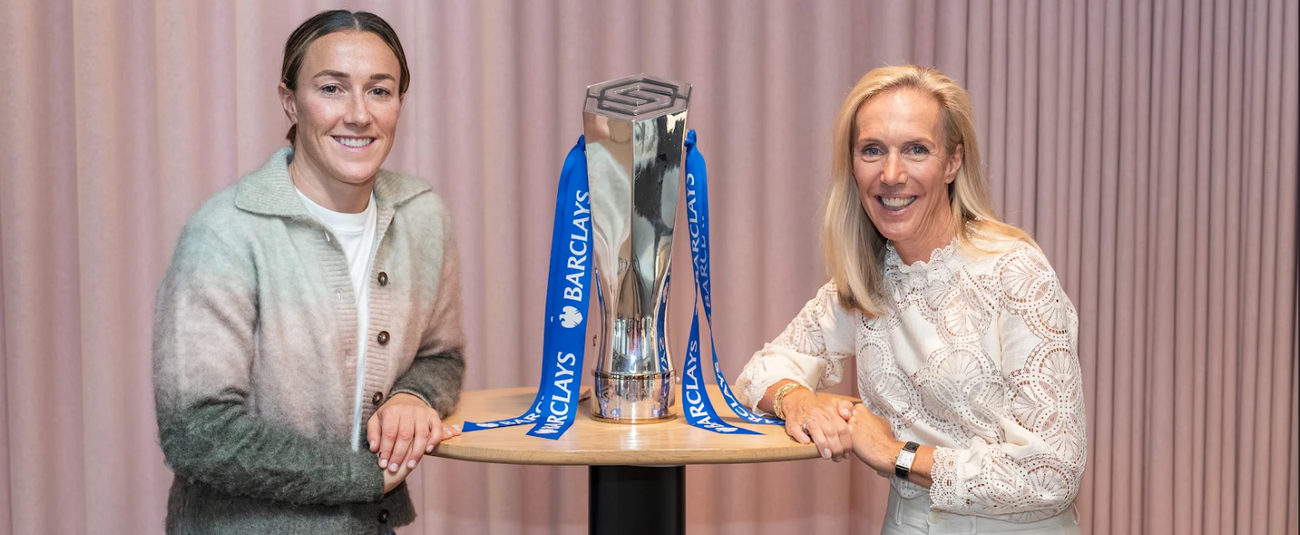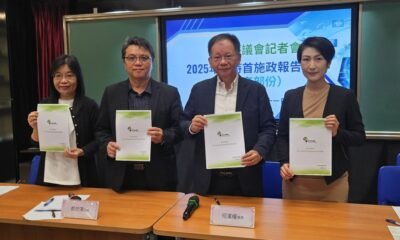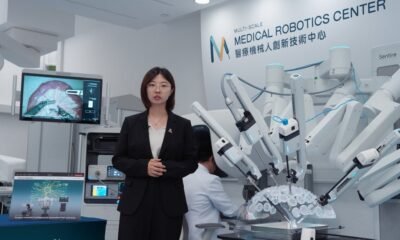Tools & Platforms
China’s solutions to making AI more inclusive-Xinhua
* The 2025 World Artificial Intelligence Conference (WAIC) brought together representatives from around the world to explore avenues for the inclusive growth of artificial intelligence (AI).
* Numerous outstanding cases demonstrated how Chinese enterprises, from leading AI model developers to industrial innovators, are leveraging AI technologies to share the benefits of AI development with more countries.
* Building on its vision for inclusive AI development, China is actively promoting initiatives and alliances designed to consolidate, standardize, and promote global artificial intelligence cooperation.
SHANGHAI, July 28 (Xinhua) — The 2025 World Artificial Intelligence Conference (WAIC), held from July 26 to 28 in Shanghai, brought together representatives from around the world to explore avenues for the inclusive growth of artificial intelligence (AI). China’s approach offered insights into how AI can deliver shared benefits and help bridge the global intelligence divide.
Under the theme “Global Solidarity in the AI Era,” the 2025 WAIC attracted over 1,500 guests from more than 30 countries and regions for in-depth exchanges and high-level forums. Featuring a record-breaking 70,000-square-meter exhibition, the 2025 WAIC unveiled over 3,000 AI innovations, including over 100 global and China-first debuts, showcasing a dynamic vision for global AI cooperation.
During the opening ceremony, several key initiatives and outcomes were announced, including an action plan for global AI governance, the International Open Source AI Cooperation Initiative, and the “AI from China·Benefits the World (2025)” case collection.
MOBILIZING GLOBAL WISDOM
At the main forum of the high-level meeting on global AI governance, global leaders reflected on the profound challenge of ensuring AI develops as a force for good rather than harm. Geoffrey Hinton, 2024 Nobel Laureate in Physics, underscored that one of humanity’s greatest challenges is ensuring that intelligent AI systems are not only vastly capable but also continue to be aligned with human interests.
Hinton likened the development of such systems to raising a tiger cub, highlighting the importance of guiding AI behavior before it grows beyond our control. He stressed that no single nation can tackle the risks of advanced AI alone, and that building AI that is both powerful and subservient will require sustained global cooperation.
Echoing this view, a dialogue between former Google CEO Eric Schmidt and former Microsoft Executive Vice President Harry Shum explored how competition and cooperation must coexist in the AI era. Schmidt underlined the need for transnational cooperation to set rules for global competition and collaboration in AI.
This exchange embodies WAIC’s broader mission to advance AI development that is inclusive, responsible, and beneficial for all humanity.
With vast data resources, diverse application scenarios, and surging market demand driven by accelerating digital transformation, China offers fertile ground for AI model training, iteration, and deployment, laying a strong foundation for global cooperation and scalable innovation, according to Gary Gu, technology consulting managing partner of EY Greater China.
On July 26, an action plan for global AI governance was released. The plan outlines concrete steps to foster open collaboration and inclusive innovation, encouraging bold experimentation, building international platforms for scientific and technological cooperation, and cultivating a pro-innovation policy environment.
It also calls for strengthened alignment in policy and regulation, and lower technical barriers to promote breakthroughs in AI technology innovation and widespread AI applications. Particular emphasis is placed on supporting countries in the Global South to develop AI technologies and services in line with their local needs, helping them genuinely access and apply AI.
INTERNATIONAL COOPERATION
At the 2025 WAIC, numerous outstanding cases demonstrated how Chinese enterprises, from leading AI model developers to industrial innovators, are leveraging AI technologies to share the benefits of AI development with more countries. This embodies China’s commitment to ensuring that AI serves not only as a driver for technological advancement but also as a tool for fostering inclusive growth.
At iFLYTEK’s exhibition area, the Spark X1 large model unveiled on July 25 has drawn significant attention from international visitors, who asked it questions in their native languages. The model now supports over 130 languages and excels in translation, reasoning, and text generation, facilitating deeper cross-border communication and cooperation.
“Our large model products are going global through intelligent terminals such as automobiles, and we are collaborating with partners in other countries on education and other fields,” said Wu Junhua, vice president of iFLYTEK. “The overseas expansion of large models shows the globalization of technology. Chinese-origin large models have begun their acceleration run, empowering the world.”
CITIC Dicastal’s plant in Morocco was listed as a “Lighthouse Factory” in January 2025, making it the first facility in Africa to achieve such recognition in the field of intelligent manufacturing. Representing a high level of global smart manufacturing, the plant has implemented over 40 digital use cases. From raw material selection to final packaging of aluminum wheels, every step is monitored and optimized in real time by intelligent systems. This has resulted in a 17 percent increase in overall equipment efficiency, a 27 percent boost in labor productivity, and a 31 percent reduction in defect rates.
French multinational Schneider Electric has emerged as a model of collaborative AI innovation through deep integration with China’s digital ecosystem. At the 2025 WAIC, Schneider Electric joined hands with several local partners to showcase cutting-edge industrial AI applications.
These included Digital Nail Technology, which specializes in AI-powered digital planning in manufacturing and Chance Digital Science & Technology, which showcased breakthrough solutions in AI-driven digital reconstruction and twin modeling for process industries. These collaborations reflect a model of inclusive innovation, leveraging global expertise and China’s vibrant AI ecosystem to accelerate real-world adoption and foster shared progress.
“China’s commitment to driving high-quality development through AI and technological innovation aligns perfectly with our vision of sustainable, green productivity. By partnering with leading Chinese enterprises, we are not only bringing global best practices to China but also exporting China’s vibrant AI ecosystem and innovations to the world,” said Philippe Rambach, Schneider Electric’s Senior Vice President and Chief Artificial Intelligence Officer. “We aim to harness AI’s full potential to build a smarter, greener future — ‘in China for China, in China for the world.'”
PROMISING INITIATIVES, PARTNERSHIPS
Building on its vision for inclusive AI development, China is actively promoting initiatives and alliances designed to consolidate, standardize, and promote global artificial intelligence cooperation. These efforts strongly focus on supporting developing countries as they seek to bridge the “intelligence divide,” ensuring that the benefits of AI innovation are shared equitably.
At the “Win-Win BRICS” forum held as part of the 2025 WAIC, representatives from many countries and international organizations gathered to discuss AI cooperation. The forum launched the BRICS AI Industry Cooperation Network, aimed at promoting standard alignment, policy dialogue, and practical AI collaboration.
Zhang Jun, product lead of Baidu’s PaddlePaddle framework, emphasized at the forum that open-source AI plays a vital role in driving inclusive technological development by making AI benefits more accessible. He noted that many of Baidu’s products and services are actively embracing large model technologies, and through open-source strategies, the company is working to extend AI capabilities to a broader user base.
Another key milestone was the launch of the Global Call for AIM Global Centers of Excellence by the United Nations Industrial Development Organization (UNIDO), aimed at accelerating AI application in manufacturing and promoting digital transformation across developing countries. This initiative fosters international collaboration and resource sharing to catalyze industrial AI innovation worldwide.
Jason Slater, chief of division of digital transformation and artificial intelligence of UNIDO, praised China’s support in Africa, especially in Ethiopia, highlighting its efforts to establish centers of excellence, expand technology access, enhance individual skills, and strengthen local innovation ecosystems — bringing AI benefits to those who need them most.
China’s commitment to sharing AI governance experience and fostering international partnerships was also highlighted by the launch of “MAZU-Urban,” an AI-powered early warning system for multi-hazard disaster prevention.
Donated to Djibouti and Mongolia, this system exemplifies China’s approach to embedding AI solutions in global public goods, enhancing resilience in vulnerable regions.
(Reporting by Ye Ting, You Zhixin, Gong Wen, Huang Anqi and Dong Xue; video reporters: Sun Qing, Chen Jin; video editors: Li Ziwei, Liu Xiaorui, Yin Le and Liu Ruoshi)■
Tools & Platforms
AI tops list of edtech priorities at K-12 schools for the first time in latest SETDA annual survey — EdTech Innovation Hub

The report, which draws on survey responses from edtech directors, state leaders, CIOs and other education leaders across 47 states, shows that AI is now at the top of state edtech priorities for the first time.
Many of the leaders surveyed reported working on guidance, professional development, and policy frameworks in AI while others have already brought on expertise in AI into their agencies to support its responsible use.
“The rise of AI as a top state priority reflects just how quickly the education landscape is evolving,” comments Julia Fallon, Executive Director of SETDA. “But what stands out in this year’s report is the through-line of commitment: state leaders are not chasing trends, they are developing policy and building frameworks that protect students, empower educators, and make technology a true driver of equity and impact. This is the work of system change, and states are leading the way.”
AI surpassed cybersecurity as a priority, which has been the top priority for the past two years. However, SETDA says cybersecurity remains a concern, with many leaders calling for continued infrastructure investment.
Other issues highlighted in the report include devices use, with ongoing debate around restricting student access to devices in classrooms. Leaders also mentioned professional development as an ongoing priority, with many saying this is an unmet need, particularly around the effective and safe use of AI in classrooms.
The ETIH Innovation Awards 2026
The EdTech Innovation Hub Awards celebrate excellence in global education technology, with a particular focus on workforce development, AI integration, and innovative learning solutions across all stages of education.
Now open for entries, the ETIH Innovation Awards 2026 recognize the companies, platforms, and individuals driving transformation in the sector, from AI-driven assessment tools and personalized learning systems, to upskilling solutions and digital platforms that connect learners with real-world outcomes.
Submissions are open to organizations across the UK, the Americas, and internationally. Entries should highlight measurable impact, whether in K–12 classrooms, higher education institutions, or lifelong learning settings.
Winners will be announced on 14 January 2026 as part of an online showcase featuring expert commentary on emerging trends and standout innovation. All winners and finalists will also be featured in our first print magazine, to be distributed at BETT 2026.
Tools & Platforms
AI Darwin Awards to mock the year’s biggest failures in artificial intelligence
Published on
ADVERTISEMENT
A new award will celebrate bad, ill-conceived, or downright dangerous uses of artificial intelligence (AI) — and its organisers are seeking the internet’s input.
The AI Darwin Awards reward the “visionaries” that “outsource our poor decision-making to machines”.
It has no affiliation with the Darwin Awards, a tongue-in-cheek award that recognises people who “accidentally remov[e] their own DNA” from the gene pool by dying in absurd ways.
To win one of the AI-centred awards, the nominated companies or people must have shown “spectacular misjudgement” with AI and “ignored obvious warning signs” before their tool or product went out.
Bonus points are given out to AI deployments that made headlines, required emergency response, or “spawned a new category of AI safety research”.
“We’re not mocking AI itself — we’re celebrating the humans who used it with all the caution of a toddler with a flamethrower,” an FAQ page about the awards reads.
Ironically, the anonymous organisers said they will verify nominations partly through an AI fact-checking system, which means they ask multiple large language models (LLMs) like OpenAI’s ChatGPT, Anthropic’s Claude, and Google’s Gemini whether the stories submitted are true.
The LLMs rate a story’s truthfulness out of 10, then the administrators of the site average the scores with an AI calculator. If the average is above five, the story is considered “verified” and eligible for an AI Darwin Award.
OpenAI, McDonald’s among early nominees
One of the approved nominations for the first AI Darwin Awards is the American fast food chain McDonald’s.
The company built an AI chatbot for job recruitment called “Olivia” that was safeguarded by an obvious password: 123456, exposing a reported 64 million people’s hiring data to hackers.
Another early nominee is OpenAI for the launch of its latest chatbot model GPT-5. French data scientist Sergey Berezin claimed he got GPT-5 to unknowingly complete harmful requests “without ever seeing direct malicious instructions”.
The winners will be determined by a public vote during the month of January, with the announcement expected in February.
The only prize: “immortal recognition for their contribution to humanity’s understanding of how not to use artificial intelligence,” the organisers said.
The hope of the awards is to serve as “cautionary tale[s]” for future decision-makers so they agree to test AI systems before deploying them.
Tools & Platforms
Leading Google UK & the AI Opportunity

The UK has always had a special place in my story. Canary Wharf is where my career began in the 90s, during a period of profound transformation for the country’s financial sector. Reflecting on my first three months as Google UK lead, it’s clear that the pace of AI innovation is driving an even greater sense of historic opportunity, not just in the City, but across the entire country.
Recently, I attended a technology industry dinner at the historic Mansion House. The evening was an electric pairing of tradition and transformation – a blend that the UK has perfected. The room was filled with British business leaders, policymakers, and trailblazers across the tech sector, eager to uncover how AI-powered technologies could help solve some of the biggest challenges of our generation. This opportunity to build on the country’s rich heritage for pioneering world leading breakthroughs is why I’m excited to be back in the UK to lead Google’s operations here.
The UK: a hub for AI innovation & cultural influence
During my 15 years at Google, I’ve held a variety of regional and global roles, partnering with a diverse range of organisations to turn complex challenges into technological opportunities. Throughout that time, the UK has always stood out as a hotbed of innovation, a global epicenter for AI research — in particular, the work of our remarkable Google DeepMind colleagues — and a pioneer in the international advertising industry.
The UK has long been a nation of early adopters. This is why the UK was one of the first countries to roll-out new Gemini-powered products, such as AI Mode — a new way to search for information, developed to cater to the growing number of people asking longer and more complex queries.
UK consumer behaviour is constantly evolving, across streaming, scrolling, searching, and shopping. That’s why Google and YouTube are uniquely positioned to empower UK businesses to thrive, in a dynamic digital environment. It’s been inspiring getting to know the teams here in the UK who are helping businesses of all sizes meet the moment and use AI-powered tools to turn their online presence into real-world revenue, providing a vital engine for UK economic growth.
The UK’s cultural influence is also undeniable, as evidenced by well established homegrown British YouTube creators, such as Amelia Dimoldenberg and Brandon B who have become new media powerhouses in their own right. Or the England squad Lionesses, like Lucy Bronze who are both athletes and content creators in their own right, inspiring young female footballers to strive for excellence on and off the pitch, while winning for the UK. YouTube, which celebrated its 20th birthday earlier this year, is transforming how businesses use AI to reach new audiences. I’m proud of our leadership in this space, and the site’s potential to connect even more brands with a new generation of consumers.
Seizing the opportunity ahead
The construction of our first UK data centre in Waltham Cross, our new King’s Cross development and our AI Works initiative — our partnership with British organisations to help uncover the most effective ways to accelerate AI adoption and upskilling — are just some of the significant investments we’re making in the UK’s digital future. The UK is a country unlike any other and this is an incredible time to be back.
-

 Business2 weeks ago
Business2 weeks agoThe Guardian view on Trump and the Fed: independence is no substitute for accountability | Editorial
-
Tools & Platforms1 month ago
Building Trust in Military AI Starts with Opening the Black Box – War on the Rocks
-

 Ethics & Policy2 months ago
Ethics & Policy2 months agoSDAIA Supports Saudi Arabia’s Leadership in Shaping Global AI Ethics, Policy, and Research – وكالة الأنباء السعودية
-

 Events & Conferences4 months ago
Events & Conferences4 months agoJourney to 1000 models: Scaling Instagram’s recommendation system
-

 Jobs & Careers2 months ago
Jobs & Careers2 months agoMumbai-based Perplexity Alternative Has 60k+ Users Without Funding
-

 Podcasts & Talks2 months ago
Podcasts & Talks2 months agoHappy 4th of July! 🎆 Made with Veo 3 in Gemini
-

 Education2 months ago
Education2 months agoMacron says UK and France have duty to tackle illegal migration ‘with humanity, solidarity and firmness’ – UK politics live | Politics
-

 Education2 months ago
Education2 months agoVEX Robotics launches AI-powered classroom robotics system
-

 Funding & Business2 months ago
Funding & Business2 months agoKayak and Expedia race to build AI travel agents that turn social posts into itineraries
-

 Podcasts & Talks2 months ago
Podcasts & Talks2 months agoOpenAI 🤝 @teamganassi





















